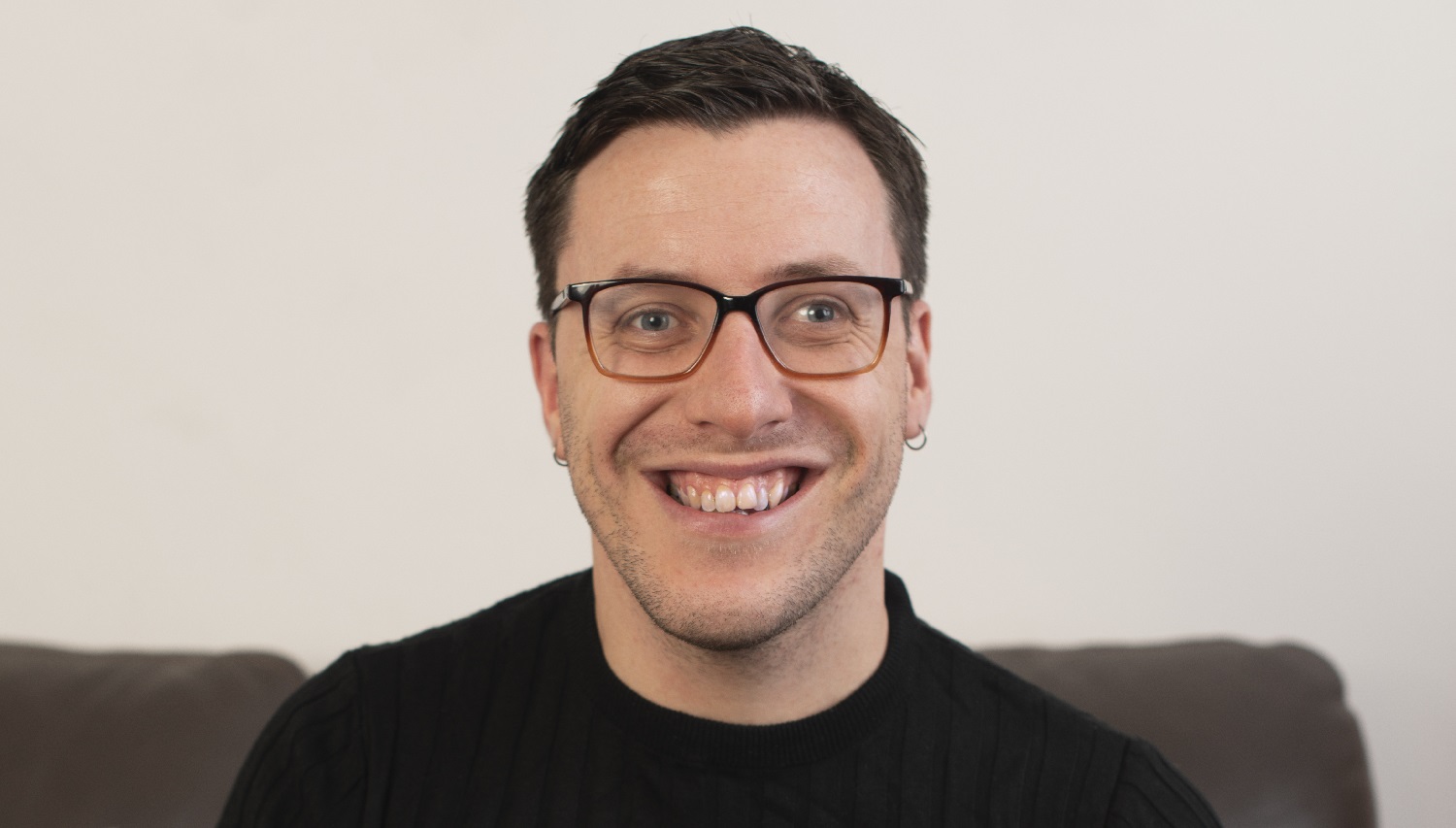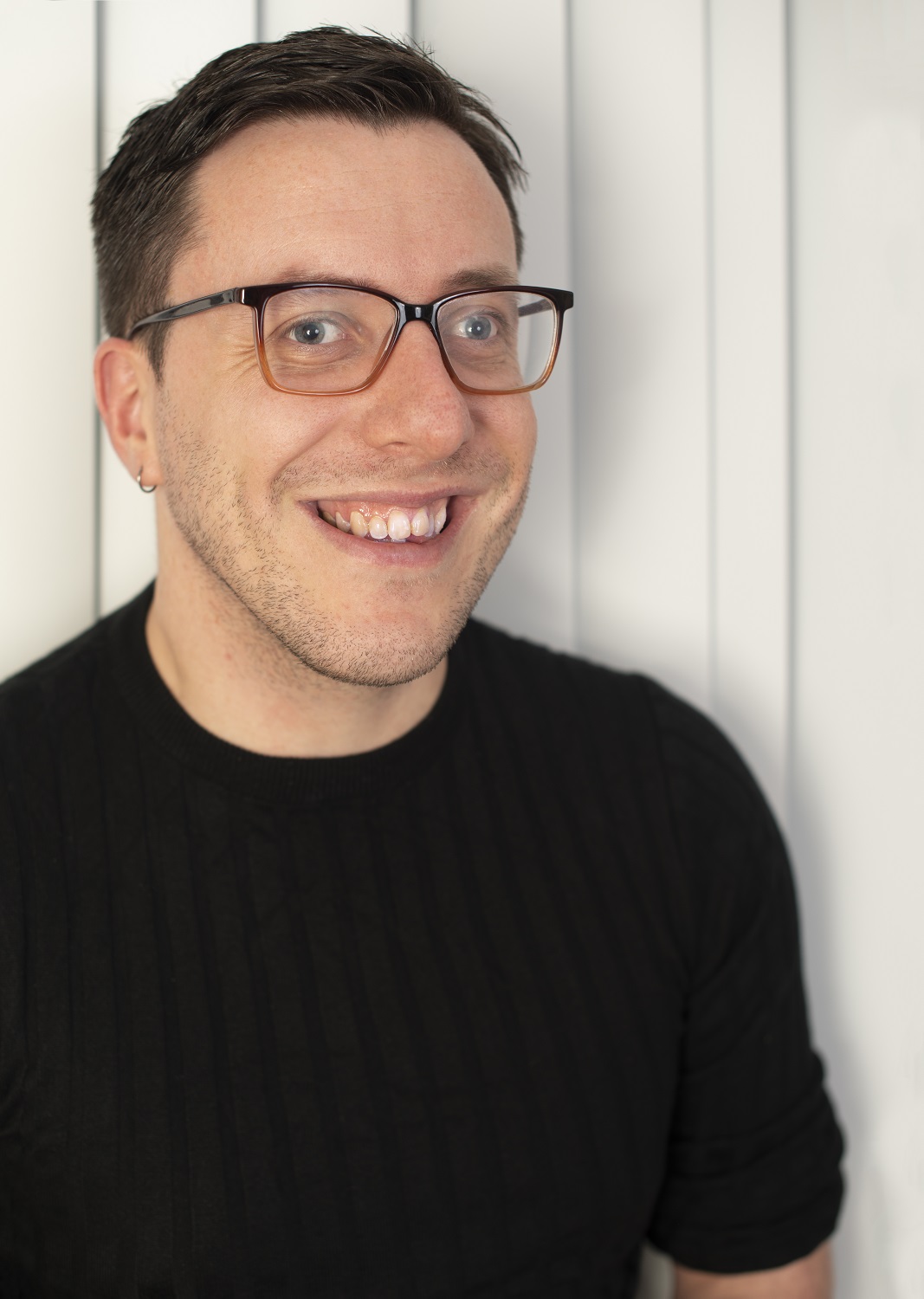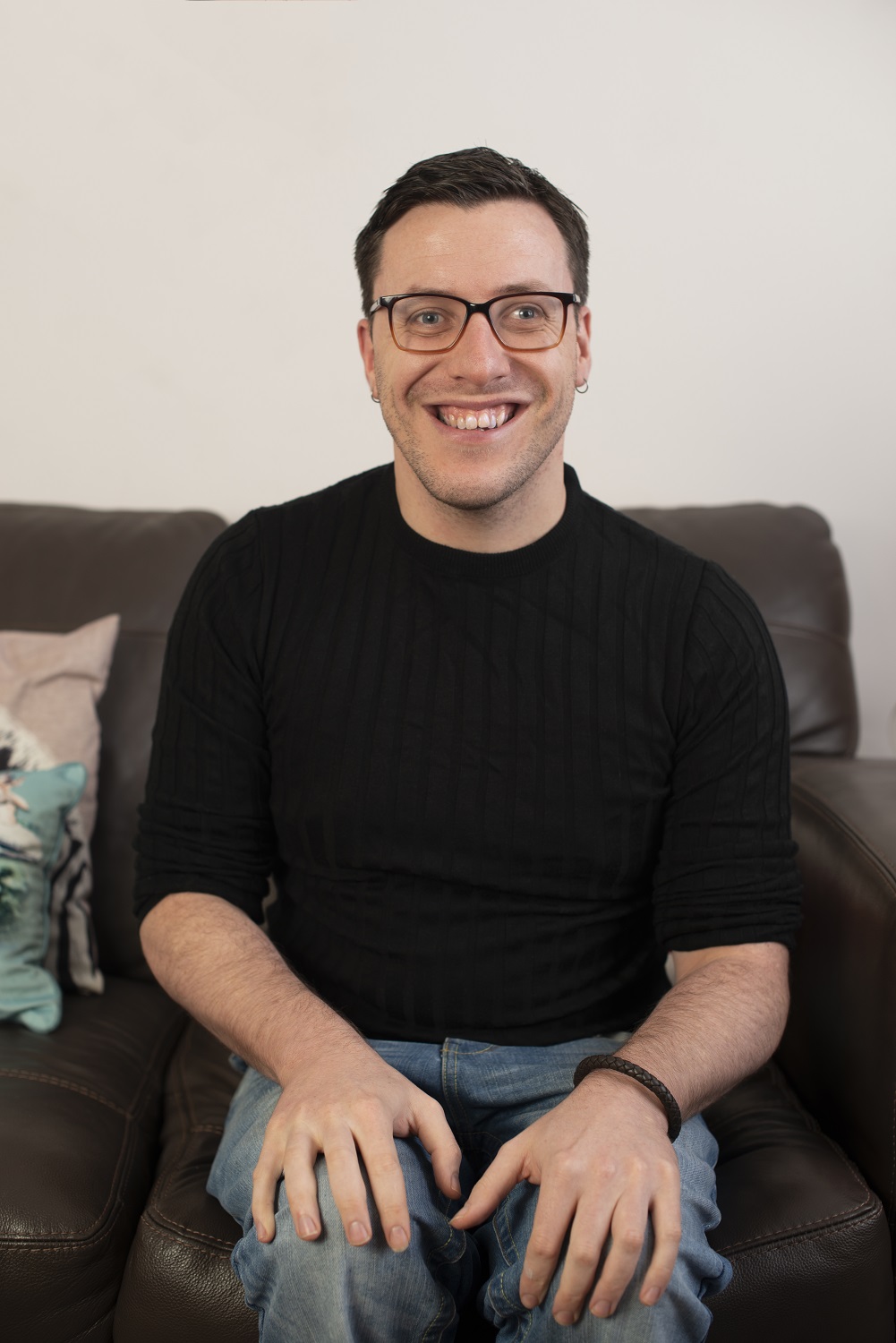‘Cerebral palsy doesn’t define me – I’m just a person who happens to be disabled and gay’
Born with cerebral palsy, Neil Dunk insists on leading the same sort of life as everyone else: having sex, fighting with his boyfriend, going out to work every day and travelling overseas.
By Will Stroude

I was born in Aberdeen in 1986, and due to complications at birth, I have cerebral palsy. It’s a neurological condition that’s caused by being starved of oxygen for a period of time, and as a result is very wideranging in its effects.
I’m lucky that my CP is mild, and mainly affects just my legs. When I’m outside, I walk with crutches because my balance is atrocious. They also, for the most part, stop people asking irritating questions — they just think I’ve broken my leg or something.
As I’ve grown older, the other major problem I encounter is fatigue. I have to be careful to manage my energy levels and not overstretch myself (luckily, I like to nap). I get muscle aches and stiffness, and after 15 years of using crutches (and swinging on them when I was younger), my back is probably not in the healthiest condition it could be. You’re supposed to have physio all the time, but I didn’t really bother until I reached my late twenties and realised my body was starting to say, “You need a hand now.”
I don’t like to identify myself as being disabled, or as being gay. I’m just a person who happens to be disabled and gay.
While my disability is mild, it has come with its challenges. When I was around 13 or 14, I had eight operations all in one go, at Guy’s Hospital, in London, to try to straighten my legs by moving the muscles around. It worked quite well but I was more interested in doing normal teenage things than doing all the physio I should’ve been to maintain my progress.
I normally get away with not telling people that I have a disability unless I want to. Unlike some people with CP, my speech isn’t affected so I can communicate well, and seeing someone on crutches isn’t particularly unusual. I’m an intelligent guy with two degrees, and I think people sometimes automatically associate disability with a lack of intelligence. I don’t take being talked down to very well.
When I was four, my family — a very strong, crazy Glaswegian family — moved to Eastbourne. My dad is a doctor, and my parents took me all over the country and even to Hungary to receive specialist treatment. If it wasn’t for that input, maybe I wouldn’t be quite as independent and mobile as I am.

Photography: Markus Bidaux
I’ve had a very active life. I’ve always worked, for a long time in Eastbourne Hospital, doing various jobs.
Now I’m a counsellor, managing a team, and my job sometimes takes me away for meetings and conferences. When I was in my early twenties, I travelled around Australia for six weeks, carrying a backpack and getting around on crutches.
Nowadays, I’m always going up to the O2 Arena in London for concerts, so I don’t let my CP hold me back.
My school years were a mixed bag. Being both gay and disabled meant I was a bit of a target — although I didn’t really know I was gay until I was 17 or so. Up until my operations, I was at a private school where I was able to swim every day and wasn’t really bullied for my differences.
But after the operations, I was moved to a mainstream secondary school that had a physio unit attached to it. I was instantly labelled as “one of the disabled children” and went from being independent to having someone follow me around all day, which was strange and ultimately just made me lazy. But at the same time, it opened my eyes to the fact that there were lots of disabled people in the world, and that in a lot of people’s eyes, I was part of that group, even if I didn’t see myself that way.
The school was in Hastings, and at the time, gay was the ‘”in” word. There was a lot of picking on people — people who weren’t even gay — just because it was a cool phrase to say. That’s when I acknowledged that it was something else that made me different.
I drunkenly came out to a friend when we were sleeping on the living room floor after a house party. Little did I know that another friend was on the other side of the door, throwing up into her dress and listening to us.
She told another friend of mine from school and college, and he took me aside and said, “I’m not gay, but I’m in love with you. If you want to be with me, we can’t tell anybody.”
We were secretly together for quite some time, which delayed my full coming out journey.

Photography: Markus Bidaux
In the end, it wasn’t until my second year of university that I told my family. I was in a relationship with the friend of another guy I’d been seeing. He didn’t take it too well and beat me up for the privilege of it. The bruises on my face forced me to come out, which was a big shock to my family, I think.
They jumped to conclusions, such as that I’d have HIV, and were worried because I’d just been beaten up. They’re really good with it now though, and I’ve got a partner who they get on with.
My CP hasn’t really held me back too much when it comes to dating and sex but it’s always been tricky knowing when to tell someone about it. Some people on apps seem to wear their disability almost as a badge of honour and are very upfront about it but I never put that information on my profile.
I was quite shrewd about telling people. I’d usually wait until we’d chatted for a while, then would say, “So tell me something about you,” and they’d respond with their hobbies and the like, and then I’d say, “I like music, concerts, swimming, blah, blah, blah…” and at the end I’d drop in the fact that I’m on crutches. I didn’t want anyone to have any misconceptions before we met.
Sometimes I’d get blocked, which I tried not to let bother me — it just shows that it wasn’t meant to be. But once I get to the point of meeting someone in person, I’ve never had any experiences where people have reacted badly. Before getting into this relationship I used to love dating. On Grindr, you have to kiss 10,000 frogs before you meet a nice guy, and I think being on crutches means you just have to kiss a few more.
I’ve had a couple of horrors of boyfriends but none of that’s because I have a disability. I’ve had people say they don’t even see my disability because they see me as a person, which is mostly the point I’d like to get across.
I’m just a person, and my sexuality and disability are just facets of me and not my whole being. You can still achieve stuff: I get up every day and go to work, I go on holiday, I argue with my boyfriend, I have sex with my boyfriend. I do all the things that other people do, I just have slightly different challenges.
You don’t have to be burdened by disability, or let it define you, whether it’s mild like mine or more severe. It’s just part of what makes you a person, and it’s in your power to ensure other people see it that way.
Read Neil’s story in the Attitude Body Issue, out now.
Buy now and take advantage of our best-ever subscription offers: three issues for £3 in print, 13 issues for £19.99 to download to any device.
